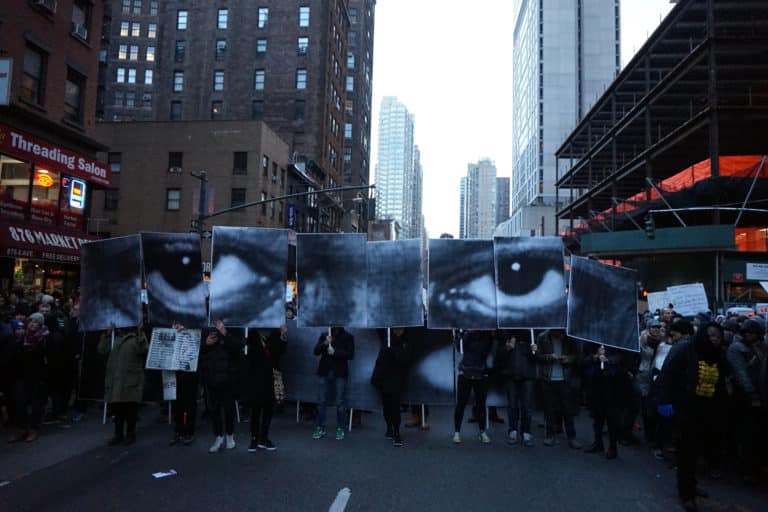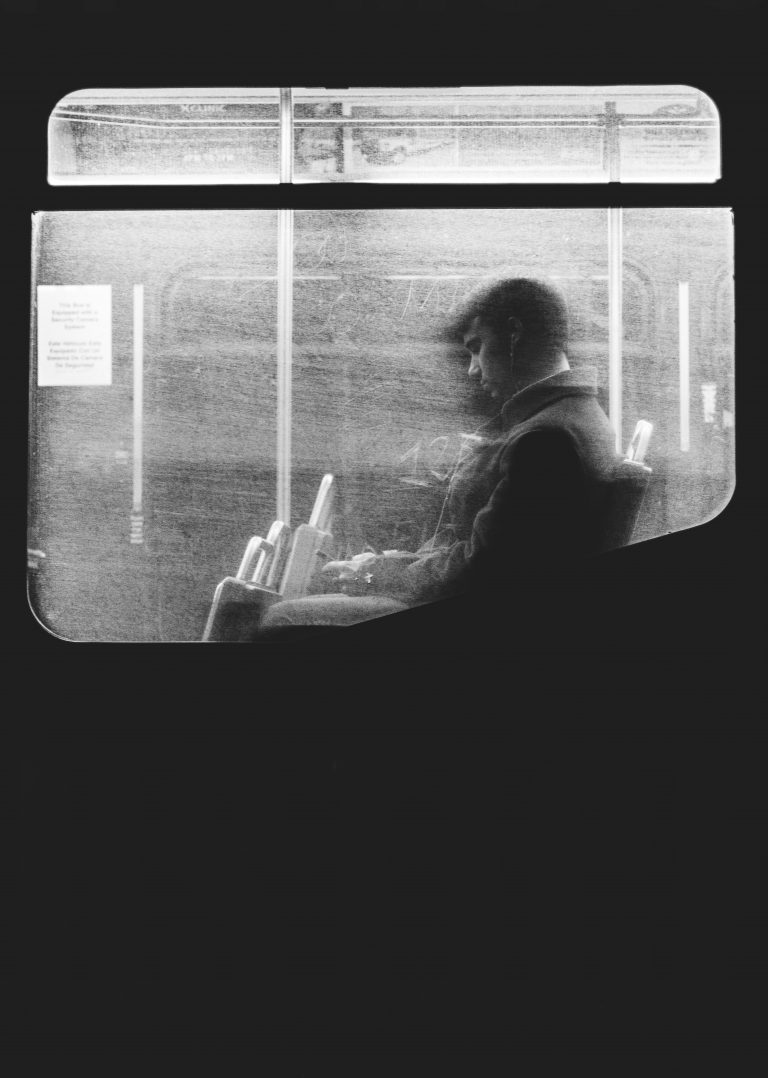
Protestors march a the Millions March for justice for victims of police violence in New York City. Image by The All-Nite Images/Flickr (CC BY-NC-SA 2.0)..
Our Witnessing Must Be Sustained
“The documented litany of police violence is now out in the open. There’s an actual theme here that’s being made evident by the digital revolution. It used to be our word against yours. It used to be said — correctly — that the patrolman on the beat on any American police force was the last perfect tyranny. Absent a herd of reliable witnesses, there were things he could do to deny you your freedom or kick your ass that were between him, you, and the street.” —David Simon
Baltimore burned. Is burning. Has been burning.
The so-called “riots” in response to the death of Freddie Gray make for “good” television and social media fodder, turning everyone into de facto witnesses. Like an earworm, the riots find you — whether you’re an old school nightly news watcher or a new school Twitter stream swimmer. People on the radio are talking about it. The parents at drop off are talking about it. When you call your mother, she says, “How about Baltimore? Wow.” It becomes the weather, at least for a few days. You can’t help but attend to its existence in some way, even if it’s small and passing.
But here’s the thing: I don’t want my attendance to deadly abuse of power to be passing. I don’t want “breaking news” to organize my moral energy.
It’s got me thinking: How consistent, how fierce, how wise is my witnessing?
This question feels even more urgent and relevant at a moment when our witnessing has been so weaponized. We can spread the word faster than ever before about injustice via our connections online. We can hold the corrupt and cruel accountable through rapidly mobilized crowds that coalesce online or off — signing petitions, protesting in the streets, boycotting or otherwise disrupting the bottom line or business as usual. We can electrify a massive flood light of shame (a tactic with a shadow side, to be sure) directly onto someone powerful so there is nowhere for them to hide on God’s green earth or World Wide Web.
In light of the fact that “witness” — my capacity to pay attention, get outraged, and move with a crowd of people demanding consequences — has been made even more powerful in recent years, how am I, how are we, leveraging that power? When and for whom? And for how long?
If the moral arc of the universe is long, as Martin Luther King so famously said, than our witnessing has to be sustained.
It can’t begin with the headlines and expire with the hashtags. It has to exist in a different time-space continuum than the one where our news cycle keeps maniacally, and too often shallowly, churning. It has to be rooted in a deeper commitment to our own humanity and the humanity of others. What does the world look like that I want my daughter to grow up in? Where do I direct my gaze and channel my power and privilege in order to co-create that world?
Part of my struggle around this question is logistical, mundane almost. I’m a busy person, as are most people. My attention is spent on such an endless array of private concerns: feed the toddler, feed myself, meet the deadline so I can get paid, pay the car payment, get the groceries, clean up the toddler’s never ending trail of odds and ends, call my mother, connect with my partner, dip into Facebook, floss my teeth. Where does moral action fit in all of this? Between Facebook and flossing? The question disgusts me. And yet it’s honest.
Surely the most sustainable activism comes from self-interest, not altruism. It’s in my interest to live in a safer, less racist world, no doubt, but I’m privileged enough that this is more of an abstraction than a daily, internalized urgency. Privilege leads to a sort of privatized complacency that is at the heart of so many of white, middle class Americans’ most unforgivable moral failings. I see that. I want to be better than that. Yet, I struggle to direct my wanting. I struggle to set my gaze somewhere that feels worthy of the injustice I abhor.
There is no easy answer because we don’t live in a world with easy problems, of course. I must keep asking the questions of myself, of my people. I must keep modeling for my daughter that her duty for enjoying the delights of this world is to also see its indignities and take them personally, to examine her own actions fiercely and endlessly, to do so in the context of her own privilege.
Before there was breaking news about Baltimore, before Freddie Gray’s spine and story were broken eternally, thousands of people perished at the hands of police. According to the latest report available, published in 2011, 4,813 people died in custody of local and state law enforcement between 2003 and 2009.
So this “theme” — in the words of David Simon — has long been developing, even if it’s just now reaching its rightful audience through the “digital revolution.” Freddie Gray has become its central character. The protestors its protagonists. The “perfect tyranny” is preventing kids from getting on school buses and the world is watching.
It’s one of the most complex, urgent American stories being told. The cameras might stop rolling, but it won’t end anytime soon. Don’t let it. Keep reading. Keep watching. Keep listening. Keep looking for a way to be a part of the crowd with its hands on the moral arc, bending, bending, bending. However long it takes.


Share your reflection